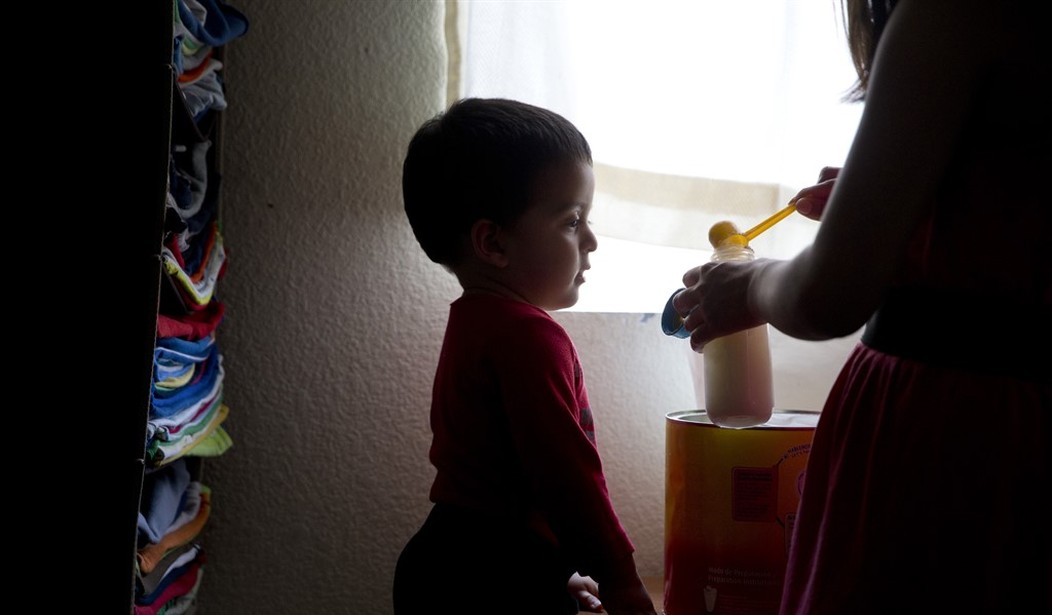The corporate-speak term, I suppose, is “baby formula” or “baby food” or whatever euphemism.
But the reality is that “baby feed” is much more semantically accurate, as humans are treated like livestock, fed absolute pseudo-nutritious crap so far removed from a natural diet that it’s borderline criminal and definitely immoral.
I would go so far as to call it abject evil.
“Baby food” was once known universally, until very recently in human history, as breastmilk. Unless there is some medical or other reason that renders breastfeeding impossible, there is no legitimate justification for feeding newborn babies anything other than breastmilk.
Via Public Eye (emphasis added):
Cerelac and Nido are some of Nestlé’s best-selling baby-food brands in low- and middle-income countries… Their sales value in this category was greater than $2.5 billion in 2022.
In its own communications or via third parties, Nestlé promotes Cerelac and Nido as brands whose aim is to help children “live healthier lives”. Fortified with vitamins, minerals and other micronutrients, these products are, according to the multinational, tailored to the needs of babies and young children and help to strengthen their growth, immune system and cognitive development.
But do these infant cereals and powdered milks really offer “the best nutrition,” as Nestlé claims...
Most Cerelac and Nido products marketed in lower-income countries do contain added sugar, often at high levels…
In Senegal and South Africa, Cerelac cereals contain 6 grams of added sugar per serving…
Manufacturers may try to get children accustomed to a certain level of sugar at a very early age, so that they prefer products high in sugar.
As far as I can tell, the benefits here are two-fold: hook the kids on processed saccharine nonsense by massaging their palate straight out of the womb while ensuring a lifetime of chronic illness for the parasitic mainstream medical establishment to feed off of for the duration of their shortened lives.
Coincidentally, to that end, Nestle, which most people might assume is just a food company, has been busy gobbling up “medical food product,” pharmaceutical, and diagnostic tools firms. Below is a small sample of their recent acquisitions from just the past decade or so.
Via Nestle (emphasis added):
Pamlab, acquired in 2013, specialises in medical food products for use under medical supervision in the nutritional management of patients with mild cognitive impairment, depression and diabetic peripheral neuropathy…
Prometheus Laboratories, acquired in 2011, specialises in diagnostics and licensed speciality pharmaceuticals in gastroenterology (GI) and oncology…
CM&D Pharma, acquired in 2011, specialises in the development of products for patients with chronic conditions like chronic kidney disease and gastrointestinal.
Furthermore, Nestle’s nefarious creation and exploitation of the baby feed market has been going on for many long decades, dating back at least to the '70s by marketing “baby formula” as a First World aspirational luxury to Third World mothers who never knew they needed corporate baby feed until Nestle told them they did — market-making 101.
Via Business Insider (emphasis added):
The New Internationalist published an exposé on Nestlé's marketing practices in 1973, "Babies Mean Business," which described how the company got Third World mothers hooked on baby formula.
But it was "The Baby Killer," a booklet published by London's War On Want organization in 1974, that really blew the lid off the baby formula industry…
Nestlé accomplished this in three ways, said New Internationalist:
- Creating a need where none existed.
- Convincing consumers the products were indispensable.
- Linking products with the most desirable and unattainable concepts—then giving a sample.










